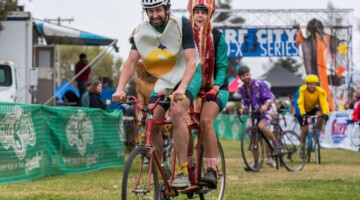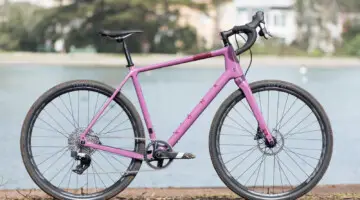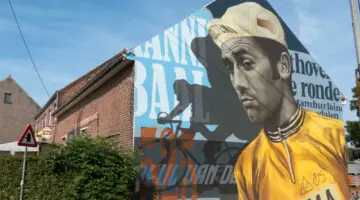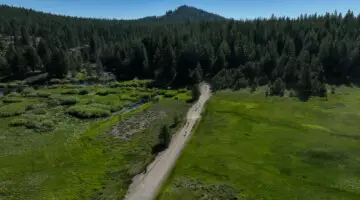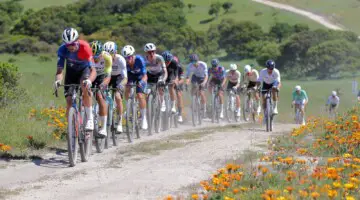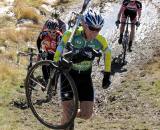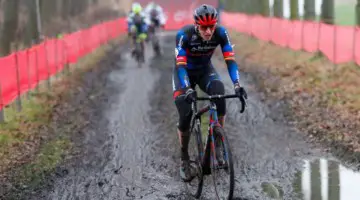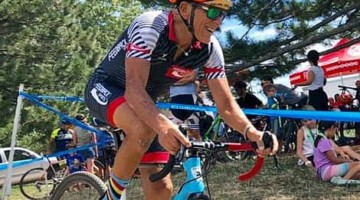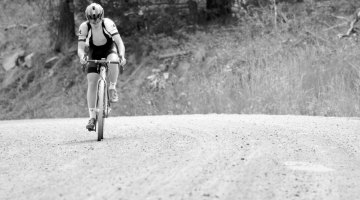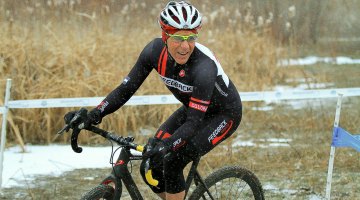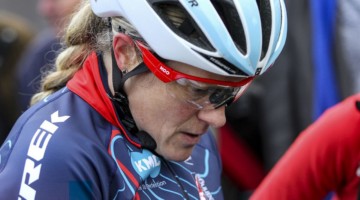How prevalent is doping in the Masters’ ranks? Recent events have have gotten CXM columnist Lee Waldman a-wonderin’. Missed Lee’s last column, where he looks at how to beef up cornering skills? Catch up here.
by Lee Waldman
Now things have truly gotten crazy! Come on, Masters racers busted for EPO? What’s gotten into us? Is winning truly of such great importance that we need to cheat to accomplish it? I’ve been saddened by all of the doping in cycling over the past decade but I can honestly say that NOTHING has affected me the way the story about Neal Schubel and Chuck Coyle has. I don’t know either of them personally. Schubel isn’t from Colorado and Coyle is much younger than I am (35+ – I challenge myself in the 45+ category).
If the accusations are true, you two should be ashamed of yourselves! C’mon, were the wins worth it? Wasn’t it difficult to live with the knowledge that you weren’t playing fair? We’d all like to be that rider who crosses the line with hands raised for the victory salute – I want it just as badly as anyone. And to be honest, I’ve wondered myself about how much of an advantage some “substance” might supply. Maybe many of us, at one point or another, have wondered about ways to get an easy boost. And the thing is, in Masters racing, there’s really not much drug testing, perhaps making doping even more tempting. Sure, some of us wonder about it. The difference is, it seems these guys actually did it!
I wonder how many other Masters racers there are not only nationally but locally who are “juicing.” My friend David and I have had that conversation numerous times on our long winter training rides. We both can point to riders who are pack fill one season and heroes the next. Knowing how hard we train, the conversation always turns to what those riders are using. We have no evidence, but lots of questions.
David has a history in bike racing that puts him “in the know”. Having been a member of an Olympic team and a Pan Am team back in the day, he knows people who know people, and there are riders our age about whom he’s heard rumors.
What worries me more is that I’m sure that these riders aren’t the only ones, simply the two that were caught. As I write this, I begin to realize that this isn’t simply about cycling but about the cloth that makes up our contemporary society. We are all about being the best – about winning; no matter what measures we have to take to get there.
In my past life, before teaching, before the restaurants that I owned, well before bike racing, I went to law school. And while there I learned about a doctrine called “Assumption of Risk,” which basically says that individuals are responsible for their own actions. We learned about it in relation to a famous ski area case where a skier wanted to sue the area for shoddy maintenance of their trails. The court basically said that we should be responsible for our own decisions and our own choices.
I’m not here to say that Schubel and Coyle haven’t owned their mistakes, and there’s always another side to every story, but I’d like to think a bit further. Doesn’t assumption of risk extend to accepting ourselves for our limitations? Maybe we should rename it as “Assumption of Responsibility.” Some of us have benefited more than others as a result of the genes we received from our parents. We’ve been able to take advantage of that gift and parlay it into success in either work, school or sports. We all make do with what we’re given, doing the best we can with what we’ve got. Many –probably most of us, gifted as well as “average” – owe our accomplishments to dedication, focus and hard, hard work. We assumed the responsibility for developing to the maximum solely by virtue of those three traits.
That’s one side of the coin. Here’s the other: We are the adults here. It’s our responsibility to model appropriate, moral behavior for younger generations who look up to us. If we can’t follow the rules, then how can we expect anything more from those who look to us to guide them, to show them how to make the right decisions.
I’ve raised two daughters and helped to raise one step-daughter. They’re all accomplished in their own ways, some as athletes, some as students, all as young women. The one thing we’ve always stressed to them is to do the best you can with what you’ve been given. After that, no matter what the ultimate result is, you can hold your head up. We’ve never accepted blaming or excuses as a reason for “failure,” but instead asked them to look at what was under their control and what wasn’t.
Were these racers just looking for an easier way? Who among us hasn’t headed out for an interval workout wishing that there was another option? I love training as much as racing, but in the spirit of full disclosure, there are those days when it’s tempting not to put in the effort. It appears to me that Mr. Schubel and Mr. Coyle were unable or unwilling to look that clearly at themselves and own their strengths and more importantly their limitations.
If we can’t do that as adults in sport, how can we expect it to happen anywhere else in our society? It really is time that we all wake up and realize that winning is not “the only thing,” as Vince Lombardi used to tell his Packers. Winning is good, sometimes great, but isn’t self-esteem more important? For me, I’m frustrated when I’m beaten, but I can be proud of myself if I’ve pushed the limits physically and mentally and beaten back the barriers that my body and my mind have set for me. I’ve been slugging it out in the 45+ category for the last two years. If I was solely focused on wins, I would have made other choices. For me the journey is equally as important as the final destination. I’m more that willing to accept racing “in the wheels” so that when I cross the line I can look myself in the eye and know that I gave it everything.
Since I turned 55, I’ve won two state championships and been the Colorado 55+ Best All Around Cross Rider once. Those “wins” were certainly enjoyable, and I savored each one. But they were no more special than the feeling I get every time I pass a rider a decade younger than I am, no matter what place in the field I’m racing for. And I can honestly say that I do it cleanly.
Is the solution mandatory testing for all categories in all races? I hope not. Can you imagine what the cost of racing would telescope to? I don’t think I’m willing to shoulder that burden. Are you? I guess what I really wish is that we could trust each other and respect ourselves enough so that a riders good results don’t need to be questioned. Now when I go to Nationals, I’ll be wondering if that rider ahead of me is there legally. The riders behind me will most likely be wondering the same about me. They don’t need to, but I understand with these recent events, it’s easy to not trust anyone.
If there’s anything I’ve realized over the years, it’s that the feeling of crossing the line with your hands in the air is only temporary, but what lasts is that feeling of pride in how you got there.
Enough for now. Go ride your bike
Agree with Lee? Worried about Masters racing? Think there will always be a few bad apples? Drop a comment below.



